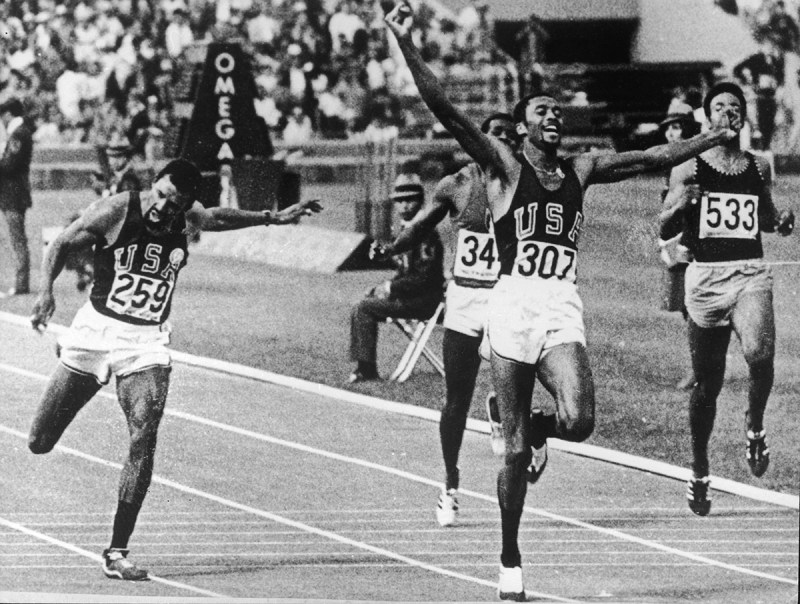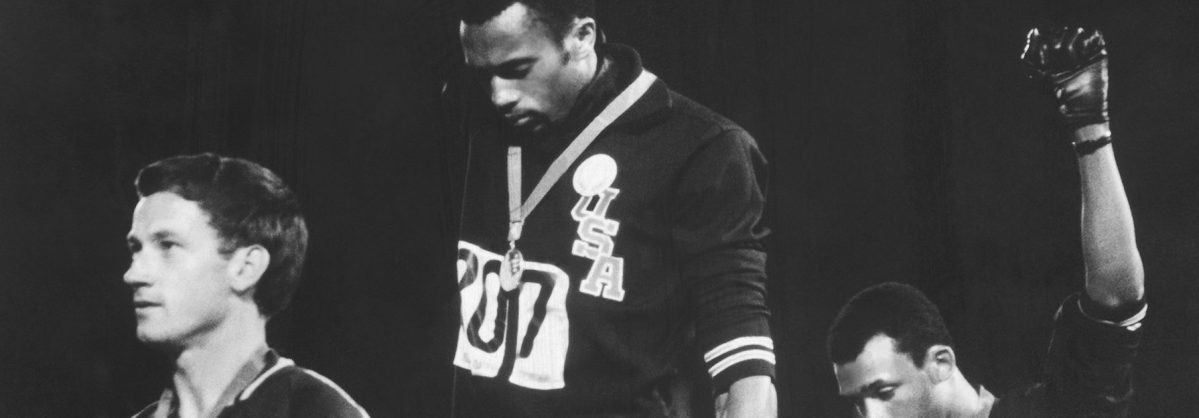
Everybody’s seen the photo. On the medal podium for the 200-meter sprint at the 1968 Summer Olympic Games in Mexico City, American teammates Tommie Smith, who won the gold, and John Carlos, the bronze, raising their black-gloved fists in silent protest. What they were protesting was the state of race relations at the time—something that’s recently made it back into the national news cycle.
Since San Francisco 49er Colin Kaepernick refused to stand during the national anthem at a preseason game, a number of players have spoken out or followed Kaepernick’s lead, including at least one player raising a fist.
But as NPR‘s Tom Goldman recently noted, in contacting Smith to discuss his famous protest (in the context of the current climate), he “realized [he] had never heard Smith talk about the race he won in Mexico City.” Of course, out came a nifty nugget: Smith had actually run the race in 19.78—Usain Bolt’s time in the 200-meter during August’s Olympic Games in Rio. That goes counter to what the record books read for Smith’s race: 19.83. (Watch the video of the race here, and you’ll note that his time is clearly 19.78.)
Listen to Smith on this side of the story that’s gone unnoticed for nearly 50 years.
The Charge will help you move better, think clearer and stay in the game longer. Subscribe to our wellness newsletter today.


















